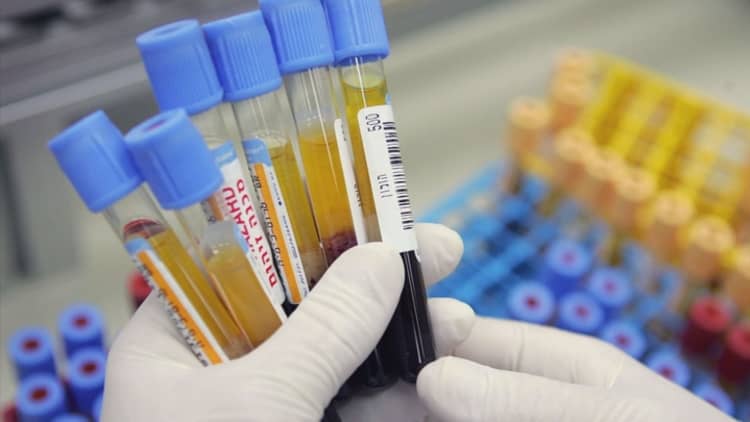
Researchers have developed a new test for every known inherited heart condition, it was announced on Friday.
An international team has shown that they can use a simple blood test to "reliably test for all known inherited heart condition genes," the British Heart Foundation (BHF) said in a news release.
The BHF said that this new procedure is "quicker and more reliable than previous tests," enabling costs to be reduced.
Inherited heart conditions affect a person's heart and circulatory system and can hit people of all ages -- sometimes fatally. The BHF says that, often, the first sign of an inherited condition is when somebody dies suddenly and with "no obvious explanation."
"Genetic tests are invaluable when managing inherited heart conditions," James Ware, one of the lead researchers on the study and a consultant cardiologist at London's Royal Brompton Hospital, said.
"They can help to make the initial diagnosis, and to choose the best treatment for the affected person," Ware added, before going on to explain that the biggest impact of such tests would be looking after an affected person's family.
The Royal Brompton and Harefield NHS Foundation Trust said that around 40 people a month were now being tested there using the new technique. With just one test, 174 faulty genes associated with inherited cardiac conditions (ICCs) – including hearth rhythm problems and diseases affecting the aorta – can be detected, the Trust added.
More than 500,000 people in the U.K. are thought to be affected by ICCs, the Trust said.
"Without a genetic test, we often have to keep the whole family under regular surveillance for many years, because some of these conditions may not develop until later in life," Ware went on to add. This was costly for both people being monitored and the health service, and caused anxiety for family members.
When a genetic test is able to reveal "the precise genetic abnormality" causing a condition, it becomes easier to test other members of a family, Ware added. "Those who do not carry the faulty gene can be reassured and spared countless hospital visits," he said.
"As research advances and technology develops, we are identifying more and more genetic mutations that cause these conditions," Peter Weissberg, the BHF's medical director, said. "In this rapidly evolving field of research the aim is to achieve ever greater diagnostic accuracy at ever-reducing cost."
"This research represents an important step along this path," Weissberg added. "It means that a single test may be able to identify the causative gene mutation in someone with an inherited heart condition thereby allowing their relatives to be easily tested for the same gene."
The research was published in the Journal of Cardiovascular Translational Research and funded by the BHF and the Health Innovation Challenge Fund, a partnership between the U.K.'s Department of Health and the Wellcome Trust.



